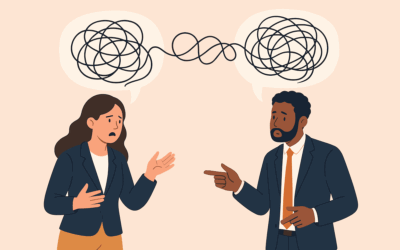Are Your Salespeople Comfortable Upselling?
Upselling—or offering a more expensive version of a product your customers want to buy—should be a natural component of most sales jobs.
After all, your customers are used to being upsold!
When they’re not at work, your B2B customers are everyday consumers just like everyone else. Our propensity for buying products online through companies like Amazon have greatly impacted how we buy almost everything.
The digital world has accustomed us to bundled products, bulk discounts, add-on services, being told what items other customers bought, and additional products we may be interested in.
So why does upselling feel so risky in person? The fear of asking for a larger order is usually associated with a lack of confidence.
Here are four tips to up your skills so you can up your sales.
1. Invest In Yourself To Develop Superior Selling Skills
Most salespeople can’t take the “would you like fries with that” approach to upselling. There are too many factors in play that have to be considered when upselling a product or service.
Confidence is key, and confidence shows up quickly when you have a clear understanding of what your customer needs and wants and how your product or service will help them get it. It also helps knowing how your product supports the strategic vision of the company even if you’re not selling directly to the C-suite.
Aligning the buyer’s journey with the seller’s objectives is what our IMPACT Selling System is all about and why it’s so effective. The best sales leaders invest in their teams by providing a standardized, clearly defined selling system. Everyone from customer service to sales managers, and sometimes even the C-suite, understand what the sales team is doing in the field and how they can best support them, given their respective roles.
Confidence increases credibility, which in turn builds trust. When salespeople can confidently recommend additional accessories or add-on products or support services, customers will listen because they’ll sense the salesperson has their best interests in mind.
2. Be Valuable To Customers
Imagine for a moment one of your competitors making an attractive offer to your largest account. Why should your customer tell the competitor that despite the compelling offer, they’d rather buy from you?
It’s worth taking a moment to actually answer that question.
A customer will stick with their current vendor because of the value the vendor provides. You want to be able to provide that value so existing customers want to stay, and competitor’s customers want to leave.
So think about what your customer considers valuable, and provide that to them. Keep the focus on the customer’s needs and wants, not your own.
Ask yourself how can I bring value to my customers today? How can I make their day a little bit easier? How will my customer feel when our interaction is done? How can I bring value to every encounter we have?
3. Study A Specific Industry Or Niche
Similar to the point above, find a niche, industry, or vertical you want to focus on—and learn everything you can about it.
Join groups associated with their trade associations. Set up Google alerts to stay current on industry trends or issues. Subscribe to (and then read) the journals or magazines your customers are reading.
Positioning yourself as an expert in a particular industry or vertical will not only allow you to speak your customer’s language, but will give you tons of relevant content that can be shared with them. A few minutes of research every day will, in time, turn you into a trusted advisor who is able to upsell customers for their benefit.
4. Increase Your Emotional Intelligence (EQ)
Emotional intelligence, also referred to as Emotional Quotient, is the ability to be aware of one’s own emotions and the emotions of others, and to manage them in a productive and empathetic manner. You can read more about EQ here.
The ability to pick up on and adapt to the subtle emotional communication that your customer is exhibiting can be more valuable in sales than actual intelligence. Knowing how to read a room builds trust and rapport.
Additionally, there are a lot of intimidating aspects to sales that can trigger emotions (like negotiating). Heart rates can go up, you can start to sweat, and customers may confuse a salesperson’s discomfort with dishonesty. Being able to regulate your own emotions will make you a more powerful negotiator — which is a skill you’ll likely need when upselling.
Fortunately, just like with IQ, you can work to develop and improve your EQ.
Evaluating Your Team’s Current Skills
Customers are more likely to purchase the A-level offering when they think of their salesperson as a strategic partner. No one can get from order-taker to strategic partner overnight, but identifying which skills each individual member of your team needs to improve will help everyone get there faster.
The Brooks Group’s IMPACT Selling Skills Index evaluates your team members’ strengths and weaknesses in each step of the selling process, so you can deliver targeted coaching and develop personalized improvement plans for team members. It’s also an incredible tool for making better hiring decisions.
Contact The Brooks Group today to learn more about our sales training programs and how we can help your organization succeed.




